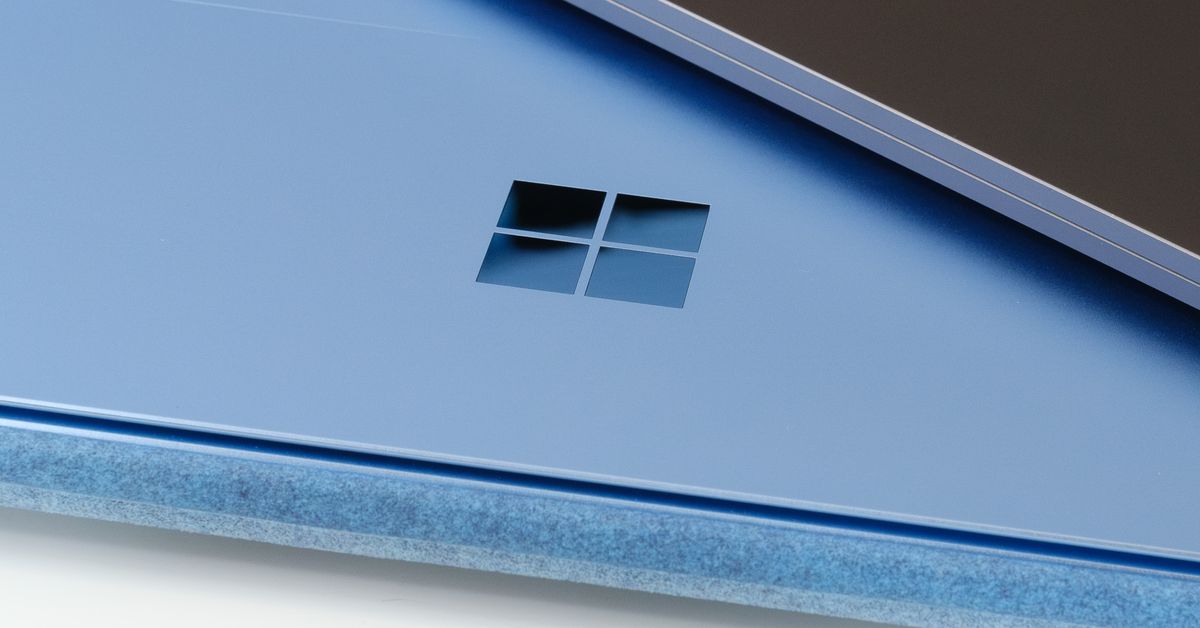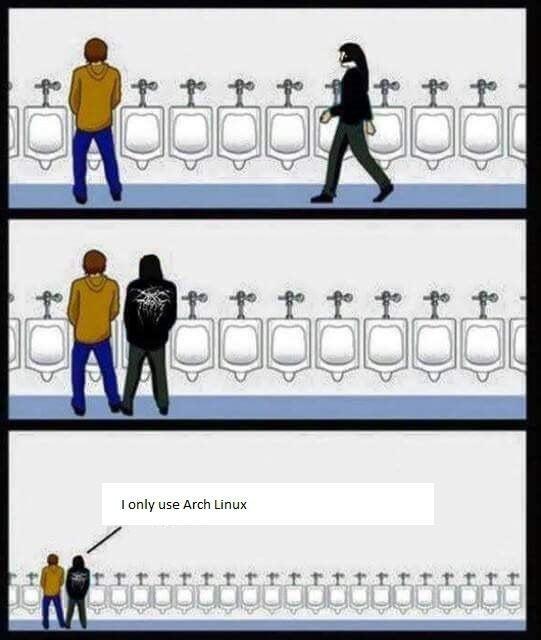deleted by creator
You can still mount it to another machine if you have the key. It’s an extra layer of pain in the ass, though.
I don’t use an M$ account so if your key is backed up to the cloud (aside: can’t wait to read the headline about when that gets breached) I don’t personally know offhand how difficult it is to extricate your BitLocker keys from Microsoft.
AES-NI has been standard for over a decade. There shouldn’t be a significant hit to processing speed.
deleted by creator
You’ve benchmarked this? Using what encryption algorithm, what processors, what benchmark?
More to the point, I think, is are there even any systems that will run Windows 11 that don’t have AES-NI?
Performance without it is kinda irrelevant because there’s no situation where you’d have Windows 11 and bitlocker and NOT AES-NI.
the days of popping out a hard drive, and grabbing whatever the hell’s on there with a usb connection are over
Independent repair shops are going to suffer big time from this.
Obviously, Microsoft will happily sell you one drive cloud backup to solve the problem they are creating.
deleted by creator
I’ve supported bitlocker in corporate deployments. I have also spent some time in independent repair shops. I have little confidence in users to supply a bitlocker key, let alone even know what one is. I anticipate a lot of “what? I already gave you my password.”
deleted by creator
[…] device encryption will be enabled by default when you first sign in or set up a device with a Microsoft account or work / school account.
For devices with a TPM, this has literally been the case since Windows 10 1803 back in 2018.
Do the average Windows user really need BitLocker device encryption? They don’t. The only users who need BitLocker are business’ and government workers.
Also 99% of Windows users are going to get locked out of their computers.
Everyone needs drive encryption.
And no, 99% of Windows users aren’t going to get locked out.
99% of Windows boxes are business boxes, which already are encrypted (and if they aren’t, that’s some bad IT).
This really only affects Home users, who don’t enable encryption because they don’t know any better. I have no doubt we’ll see quite a few people have issues because they lose their key and can’t recover their data. This is why MS should provide clear directions during setup about storing the key. Instead they’re going to keep it in people’s OneDrive/365 account. Such a bad idea. Now I’ve gotta write documentation for friends and family about what NOT to do during setup.
This is why MS should provide clear directions during setup about storing the key.
Now I’ve gotta write documentation for friends and family about what NOT to do during setup.
Okay. You need to write documentation for your friends and family, but Microsoft have clear directions.
The anti-MS here is annoying. They set up online accounts by default to improve usability and its complaints about privacy. They set up full disk encryption at rest by default to improve privacy and its complaints about usability.
They set up online accounts by default to improve usability
Hahahahaha, you’re kidding, right? Or do you genuinely believe this?
Unless you mean usability for MS tracking and telemetry of home users who lack the expertise of enterprise IT (which uses Windows Pro, and disables/blocks the MS tracking via Group Policy, which isn’t available on Windows Home).
The reason for defaulting to an MS account, and making it practically required (they even hide creating a local account during setup if it has a network connection), is to capture even more user data and telemetry.
Now, defaulting to encryption is a good thing. But, the way to do it is to explain during setup (and have a process for) saving the key to another device immediately after setup - such as a thumb drive. Or even printing it, saving it to a text file, etc, etc.
It should also explain how critical it is, and not to trust saving it to a single device/location.
Setting up online accounts and allowing login via online accounts is fine. Forcing the use of an online account to use an operating system is not OK. They are actively blocking workarounds people use to setup their machine with a local account only.
Providing an easy (perhaps upon installation or first login) method to enable full disk encryption is a good thing. Automatically doing it without user intervention is not.
I would say that enabling it by default and offering a way to disable it before it happens on a laptop makes sense. I have bitlocker enabled on my laptop. But I cannot see any real reason to put it on my desktop. The number of cases where bitlocker on my desktop makes sense are too few to bother with the potential for problems it brings.
The two things are also linked, I suspect they will tie in your bitlocker unlock keys to the microsoft account they force you to login with on computer/windows setup. Should you lose access through any means you could lose access to your account, you’re one misclick/hardware change away from bricking your system.
I also wonder, say for example your Microsoft account becomes banned/deleted through some obscure TOS violation and your PC doesn’t have any local accounts configured. Are you locked out of your PC?
I’m not anti microsoft. I’m anti a lot of their recent actions, and cynical about their overall intentions regarding them.
These are valid complaints tho.
From powerusers yes, and taking away their options is nonsense. But for the general populace it is arguably a good thing.
How?
Most users have no clue, lose passwords, security is not something they think about at all. So arguably for these people setting up with an account, having them pay for 365, all their files are encrypted at least and backed up to OneDrive automatically, no user setup required. The whole ordeal is actually pretty sleek for people that just want to use their computer to sync their photos, browse the web and watch some videos. The Microsoft authenticator can store passwords, edge syncs everything… they even have a solution for syncing the co plete config of your windows to a second device… you log in and it’s exactly like my other PC.
I helped plenty of people migrate to their new laptop like this. I go through checking the setup on their old PC… everything is synced and done. Advise them on the new laptop they buy, and the new one is setup in under 15 minutes… no hassle at all.
deleted by creator
Oh god… you know my dad?
Agreed. The immature iamsosmart user base is making me strongly consider leaving Lemmy for good. There just aren’t enough actual professionals here for any serious discussion in a technical community. It’s just a bunch of 20-year-olds who think they have the world figured out. And they all downvote based on emotion rather than facts (which I am quite prepared for).
Microsoft accounts, OneDrive, and BitLocker are absolutely great features for the average user providing SSO, cloud storage with ransomware-proof backups, and seamless full-disk encryption.
I love Linux too, but there seems to be no room for nuance on Lemmy. These children are insufferable.
I’m actually 46.
I’m actually 46.
Here’s a cookie:

Oh, and I use Arch btw.
I lost all of my data on a tablet that had Bitlocker installed without my knowledge. Not one time was I ever told that my drive was encrypted or that there was even something called Bitlocker or that I should write down some password or code. Bitlocker activated because of an OS update, and I had no way to unlock it so I had to wipe the drive. I don’t have an MS account, because I have no need to give MS all of my data, so I couldn’t unlock it that way either. And no, I’m not a 20 year old; I’m someone who has used computers since before the internet and have no interest in setting up a corporate account for every watch, shoe, phone, video game, car, etc. I have no interest in giving MS all of my pictures, documents, emails, and browsing history.
Bitlocker activated because of an OS update
This did not happen. You did something to enable it.
I don’t have an MS account, because I have no need to give MS all of my data
If you had one, all of your data would have been safe in OneDrive and easily recoverable. But I’m sure the irony is completely lost on all the anti-MS people here. Nah, it must be Microsoft’s fault you didn’t have backups when you broke your tablet.
Bitlocker activates when you enter an incorrect OS password too many times. I had my tablet set to unlock without a password or pass code, so I never used whatever pass code I set up a year and a half earlier. After one of the OS updates it forced me to log in with a pass code. I tried some pass codes I thought I might have used, thinking that worst case I would have to do a time delay before trying again… because again, MS never told me Bitlocker was installed and never told me it had a password and never told me I should write down whatever password Bitlocker set for itself and never told me that Bitlocker would lock my entire harddrive if I entered an incorrect password too many times.
But go ahead and keep telling me it’s my fault MS added something so intrusive without telling me.
Bitlocker activates when you enter an incorrect OS password too many times.
This is completely false. Please stop spreading misinformation. You clearly have no idea how BitLocker works, nor Secure Boot, BCD, TPM, or PCRs. Or anything really.
Maybe you should stick to an iPad. I’m done replying to this blithering nonsense.
Where is /c/confidentlyincorrect when you need it?
Very first goddamn bullet: “Entering the wrong PIN too many times”
That’s the BitLocker PIN, not the OS PIN. Go away.
If they are so great, why do they need to be continuously shoved down the throats of users who don’t want them? That’s the part everyone hates. The dark patterns everywhere. My OS should do exactly as I tell it, not the other way around.
They’re not dark patterns. You kids love throwing that term at everything. They’re simply secure defaults because the average user doesn’t change defaults. And “continuously?” Please. 🙄
And “continuously?” Please. 🙄
Do you really want me to count the number of times I’ve switched default browsers away from Edge, only to have it reverted back? And yes, hiding the local account option from the setup screen is a dark pattern.
You kids
I’m probably twice as old as you are. I’ve used MS OSes since MS-DOS 3.0.
Do you really want me to count the number of times I’ve switched default browsers away from Edge, only to have it reverted back?
So you suck at managing computers. Got it. This has never happened to me, but I also don’t install every third party app under the sun trying to fight how Windows is designed to work. I bet you have some shady custom start menu app and run CCleaner and defrag on a schedule.
I’ve used MS OSes since MS-DOS 3.0.
Ooh, big flex. I can go back even further but it doesn’t matter because only one of us here seems to know how to use MS OSes without everything randomly changing on them due to *checks notes* “dark patterns.”
I hope it does not affect performance
If you read that article it’s only slow on systems that don’t have hardware acceleration, which basically isn’t any system from the past half a decade at least (and definitely not anything that would have a compatible TPM)
I’m rocking a 12-year-old 3930k with BitLocker on all drives and it’s perfectly fine.
It still uses the TPM by default, instead of requireing a passphrase to be typed in on boot to unlock the keys. This still makes it an insecure mess.
https://yewtu.be/watch?v=wTl4vEednkQ
https://github.com/stacksmashing/pico-tpmsniffer
https://github.com/stacksmashing/LPCClocklessAnalyzer
Microsoft NEVER cares about your security. They just do the absolute bare minimum for compliance with stupid standards, and then advertise it as some crazy security improvement. Corporations lie to you all the time. If you want some actual security, you need to start using FOSS software. Most importantly a FOSS, Linux-based OS, and set it up with LUKS passphrase-based encryption.
Cool, let all the dumb fuck time vampires suffer. I won’t be helping anyone with shit. “Shoulda bought a Mac”
Well, you probably can’t anyway. Your (l)users are not going to have their BitLocker keys, and it’s virtually guaranteed they won’t even know what that is. So it’s a total wipe and reinstall for you, my friend.
Exactly, it’s wonderful news!
A Mac? Hahahaha, what a fucking joke.
Hey, what version of AutoDesk is on Mac these days? Catia?
Oh, yea, none. There are thousands of other software and $ reasons why “just buy a Mac” is a moronic answer.
Clownstrike taught them nothing…
What does Crowdstrike have to do with Bitlocker?
Clearly you didn’t do any machine recovery during that fiasco or you wouldn’t ask. When the machines crashed the only fix was to get in and delete the offending file, but as Windows wouldn’t load up you had to unlock the drive to get in with a working OS.
Ok, but what lesson was Microsoft supposed to learn from the Crowdstrike fiasco that have to do with the implementation of Bitlocker in personal devices?
Are you suggesting that OS drive encryption should never be implemented due to the fact that computers might sometimes need to be accessed without the OS booting up? That doesn’t really make sense. That’s what Bitlocker keys are for, to unlock the drive if needed.
OK buddy, you can be right if it’s that important to you.
I don’t know everything about what happened during the Crowdstrike fiasco since it didn’t directly affect my company, so I’m asking questions. I don’t really care about being right. If you were talking about something I don’t know, I’m glad to learn new things about that incident. Why get defensive on something like this instead of just clarifying your point?
OK, I may have misread the intent. Sorry.
Basically for any machine with bitlocker on it we had to unlock the drive before getting the ability to load an external OS to go on to that drive and remove the problem file. The built in Windows was completely borked. For a home user that’s generally quick and easy to do, in any corporate environment it will take hours if not days to get that unlock code and meanwhile nothing can get done meaning business grinds to a halt and waits.
As for what happened in the first place, Crowdstrike updated a file for their nanny app which has kernel (lowest OS level) access so when their app choked on the bad update it crashed the kernel which meant Windows couldn’t even load much less run.
The two aren’t directly related but one made the other significantly harder to fix with any speed.
Perfect, this will finally lock out all the old people of their devices because they forget their bitlocker password :D
Keys are backed up to their MS account by default.
Unless you don’t have an MS account or only set up a dummy account just to get the stupid OS to activate and have never used once since.
Wel then, either get a Microsoft account that you remember the password to or don’t use Windows since they are pushing hard for this type of security. Linux is completely free for people who don’t like the way Windows is heading towards.
I guess they’ll use TPM. I’m so excited to tell half of my “clients” (all seniors in the village) that they are fucked because their Laptop died.
Oh, I can just imagine. Customers getting angry that their tech support cannot “just simply” recover their files like they used to and accuse them of scamming. Fucking thanks, Microsoft.
Yeah, this makes sense for corporate environments with keys backed up to a centralized location like Active Directory. Not for consumers with no reasonable way to keep some key like this in a safe place as a “break glass in case of emergency” option.
It backs up to the Microsoft Account
Still, some people create an @outlook.com email, set up no recovery options, forget the password, and find themselves locked out.
How do you get to your Microsoft account when your computer is locked?
Many people will have access to a secondary device, not all of course.
Almost everyone has access to a phone. Most governments, including the US provide free or low cost smartphones to those who can’t afford it. There are entire MVNO carriers based around this, like Assurance wireless.
A phone or another computer?
If you’re doing things properly, you’ll know your Microsoft account password or have it in a password manager (and maybe have other account recovery options available like getting a password reset email etc.), and have a separate password for the PC you’re locked out of, which would be the thing you’d forgotten. If someone isn’t computer-literate, it’s totally plausible that they’d forget both passwords, have no password manager, and not have set up a recovery email address, and they’d lose all their data if they couldn’t get into their machine.
Even if you have your Microsoft account password, it doesn’t help when you can’t even boot into Windows.
Most people have smartphones these days where they would be able to log into their account and grab the recovery key if it’s backed up. If they don’t have a phone, they will know someone that does, or a library with a computer.
Bear in mind that non-techy users don’t get the option to opt out of a Microsoft account in the OOBE now, so most should have their key backed up without thinking about it
Microsoft fucked that up in the Home edition, where the key in your account won’t work.
Timestamp 8:48 in this video
https://youtu.be/pIRNpDvGF4w
You don’t need your hard drive if all your files have been secretly moved to OneDrive taps forehead.
All 5 GB of them. Wait …
I think this is a step in the right direction. Everyone can lose a portable device or it can get stolen, so protecting the potentially sensitive data is important.
I think what people are complaining about is not full-disk encryption itself, but the fact that people are not used to being responsible for their cryptographic keys.
I think we should educate people regarding this responsibility. We did it with regular keys we use to unlock our homes.
Are they even saved by default in an MS account? Because if I’d link one, I would expect them to at least prompt me
I believe you can find them in the first Microsoft account that you registered to that windows install.
This is good but they need better guidance to nontechnical users how to backup their keys. Cloud backup now that they are trying to make local accounts illegal I suppose.
This one is especially fun on windows 11 home. At least it was some time ago on some machine i worked on. Since home doesn’t have the bitlocker settings fully you cannot disable bitlocker encryption. It would also auto enable sometimes even if you don’t have a microsoft account, which means it doesn’t back the key up anywhere. Not sure it does that anymore, i hope not, but i expect a lot of people to lose their data to this crap in the future.
In either case at least i find that full disk encryption on most machines is just overkill as it only really protects in the scenario the device is stolen and someone tries to pull data off of it that way. But in the vast majority of cases when people get their data stolen its done with malware, which disk encryption does /nothing/ to prevent.
In the scenario in which your computer is forgotten or stolen, it would offer some comfort knowing that the data on the computer is not accessible.
We have a “policy” in our household that everything that has personal data should be encrypted. That is just for cases in which we lose the device or it gets stolen. That makes it a purely financial loss, and not as invasive / uncomfortable.
But on the other hand my household are not average users. So it might not work well for other people.
This will make people angry in waves as updates break bitlocker and cohorts don’t have their key, a new one each time





















